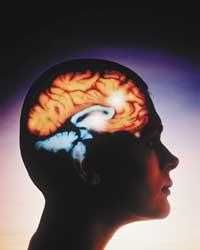Receptor shortage associated with pest crisis
People with panic attacks suffer from the shortage of a basic neurochemical receptor, according to a study conducted in the US. The 5HT1A receptor deficit has been first associated with this disease, but other studies have already associated it with depression.

Some of the symptoms of panic disorder are intense fear, heartbeat acceleration, and chest pain. Millions of people suffer from this disease in the world.
In the study, the brains of healthy and sick people analyzed the images and observed that patients had 30% fewer 5HT1A receptors. Other studies detect that patients with depression have 10% fewer receptors.
This discovery makes it possible to use this receptor as a marker, according to experts, and can have great importance in the development of treatments. In addition, panic disorder can be transmitted in the family, so research can be useful to know who is at risk of getting sick from the patient's family.





